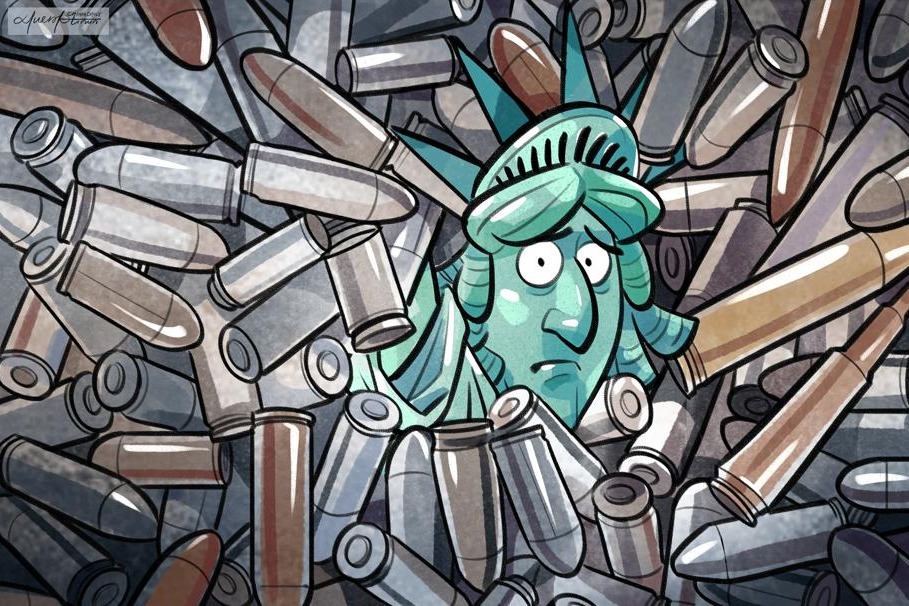Gainful deployment


It is essential for Europe and China to work together, not only for the benefit of their own people, but also for the broader international community
We are witnessing the ongoing evolution of not only Belgium-China relationship but also EU-China relations, a relationship that is integral not only to the economic prosperity of both regions, but also to the stability of the global order.
Generally speaking, the relationship between Europe and China is complex and multifaceted. Despite the fact that China and the European Union maintain a partnership, it is also acknowledged that there are trade tensions and several areas of competition. The EU seeks to attain strategic independence and greater reciprocity and wants to improve its competitiveness in the global economy. The future of European competitiveness is indeed increasingly intertwined with China, and how the EU navigates its ties with China will shape the broader economic and geopolitical landscape in the coming decades.
The balance between competition and cooperation will be a key issue that will define the future of EU-China relations. To this end, the EU has adopted a cautious yet pragmatic approach, one that includes de-risking its economic reliance on China and that aims to reduce Chinese influence in critical sectors such as energy and digital technology. I believe the goal should be to pursue a pragmatic, fact-based and balanced approach, in order to find common ground and keep a frank and open dialogue. Only in this way will the two global powers be able to reduce vulnerabilities without severing ties that are vital for economic growth and international collaboration. The EU's strategy should not be one of confrontation but rather one of coexistence with China, which preserves European values while advancing mutual interests.
The EU and China should continue to work toward greater market access for European businesses in China, particularly in sectors such as technology, auto manufacturing and pharmaceuticals. While China has made some strides in opening its economy, more can still be done. The EU's role as an advocate for fair market access can help ensure that European companies compete on a level playing field in the Chinese market.
Europe's competitiveness must also be assessed in the context of the broader global economy. The United States remains a dominant global economic force. As the EU and China navigate their bilateral relationship, they must also consider the geopolitical rivalry with the US, especially in the context of the recent re-election of Donald Trump as US president. For example, both sides face common challenges related to technology, supply chains, and the future of multilateral institutions. A strategic partnership between China and Europe could help them mitigate the risks of over-reliance on the US while maintaining their own economic and political autonomy.
As the chairman of the Belgian-Chinese Chamber of Commerce, I believe in the power of constructive cooperation. While it is clear that the EU must preserve its values and interests, it also recognizes the necessity of cooperating with China on global challenges, such as climate change and economic instability, that transcend national borders.
Working together with China to combat these global issues can also help Europe achieve its goal of strategic independence. By working together to promote sustainable development and reduce greenhouse gas emissions, Europe and China can help to address some of the most pressing issues facing the world today. The EU's Green Deal and China's commitment to becoming carbon neutral before 2060 provide a shared framework for collaboration on green technologies, energy efficiency and climate mitigation. By working together, Europe and China can make significant strides toward addressing climate change while also stimulating economic growth and job creation on both continents. Additionally, by working together to promote economic development in less developed regions, Europe and China can help to reduce poverty and promote stability.
In the context of trade and market access, both the EU and China must work toward greater openness and reciprocity. For European businesses, gaining access to key sectors of the Chinese economy, such as technology, auto manufacturing, and pharmaceuticals, remains a priority. While China has made progress in opening its markets, more work remains to be done to ensure that European companies can compete on a level playing field and vice versa. The EU's role as an advocate for fair market access is crucial in ensuring that trade between the two regions remains open, transparent and mutually beneficial.
The road ahead is not without challenges, but we should be optimistic that through continued dialogue and cooperation, both Europe and China can build a future that promotes economic growth, stability and mutual prosperity. As we face a rapidly changing global landscape, it is essential for Europe and China to work together, not only for the benefit of their own people but also for the broader international community.
The author is chairman of the Belgian-Chinese Chamber of Commerce and senior partner of Dewit Law Office. The author contributed this article to China Watch, a think tank powered by China Daily.
The views don't necessarily reflect those of China Daily.
Contact the editor at editor@chinawatch.cn.



































